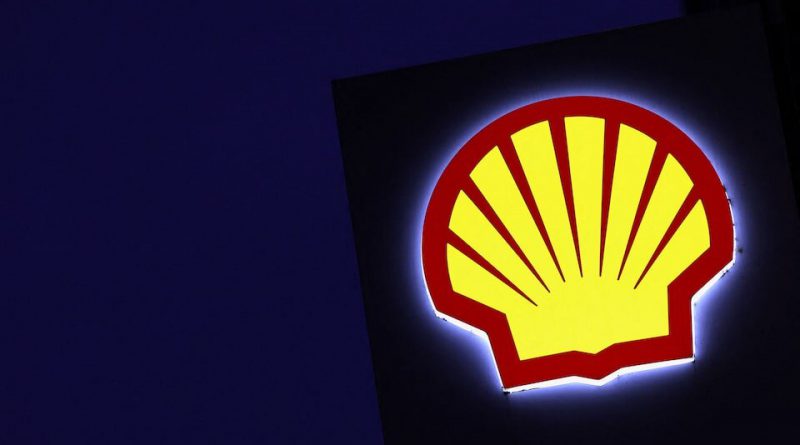Shell and TotalEnergies Deliver Resilient Results Amid Market Shifts
Despite softer oil prices, energy giants Shell and TotalEnergies reported strong, stable results that reflect disciplined strategy, investor confidence, and growing opportunities in natural gas and refining — reinforcing their leadership in the global energy transition.
Shell and TotalEnergies, two of the world’s leading energy companies, showcased steady performance in their latest quarterly results, demonstrating resilience and strategic adaptability amid fluctuating oil prices.
While both firms reported modest declines in profit, they continued to deliver solid shareholder returns, strengthened their balance sheets, and reaffirmed their commitment to long-term growth in liquefied natural gas (LNG) and downstream operations.
Shell reported adjusted earnings of $5.4 billion for the quarter ending September 30, surpassing analyst expectations of $5.09 billion.
The company’s strong showing was supported by robust results from its gas and upstream businesses, which performed better than anticipated despite weaker commodity prices.
This underscores Shell’s ability to leverage its diversified portfolio and trading expertise to sustain profitability even in challenging market conditions.
The energy major also maintained its $3.5 billion share buyback program for the quarter, reflecting continued confidence in its financial stability. Over the past four years, Shell has repurchased more than a quarter of its outstanding shares, enhancing value for investors.
Combined with dividends of $2.1 billion, Shell’s shareholder returns over the last four quarters represent nearly half of its operating cash flow, in line with its long-term payout targets.
Shell CEO Wael Sawan emphasized the company’s commitment to balancing profitability with energy transition goals. He noted that while short-term oil supply dynamics remain uncertain, the company is well-positioned for the future through its expanding LNG portfolio.
Shell continues to bet on rising global demand for liquefied natural gas, especially as countries accelerate their shift toward cleaner energy sources.
Shell’s integrated gas unit — the world’s largest LNG trading business — once again proved to be a key profit driver. The segment benefited from favorable trading conditions and resilient demand across Asia and Europe.
Looking ahead, Shell expects the LNG market to stabilize next year, with potential imbalances depending on the timing of new global projects.
The company’s cash flow from operations stood at $12.2 billion, down from $14.7 billion a year earlier, but still indicative of strong underlying performance.
Shell’s gearing, or debt-to-equity ratio, dipped slightly from the previous quarter and remains within comfortable levels. The company’s focus on disciplined capital spending and operational efficiency continues to strengthen its financial foundation.
Meanwhile, French energy major TotalEnergies also delivered a stable performance, with adjusted net income of $4.0 billion for the quarter, slightly lower than last year’s $4.1 billion.
The results aligned with market expectations and reflected strong upstream production, higher refining margins, and disciplined cost control.
TotalEnergies’ downstream operations stood out with an impressive 76% jump in profits, boosted by surging European refining margins.
The increase was driven by the European Union’s ban on fuel imports derived from Russian crude oil, which reshaped the continent’s energy supply landscape.
CEO Patrick Pouyanné noted that refining margins are expected to remain strong, projecting an average near $100 per ton in the next quarter.
Despite the external headwinds, TotalEnergies remains focused on financial discipline. The company will scale back its share buybacks slightly in the coming quarter to maintain balance sheet strength and manage debt responsibly.
Its gearing ratio improved quarter-on-quarter to 17.3%, reflecting prudent financial management.
Both Shell and TotalEnergies are navigating a complex energy landscape marked by evolving demand patterns, climate commitments, and geopolitical uncertainty.
Yet, both companies continue to balance short-term performance with long-term transformation. Shell’s emphasis on LNG expansion and TotalEnergies’ success in refining and low-carbon initiatives signal strategic foresight as the global energy system evolves.
Brent crude prices averaged around $68 per barrel during the quarter, lower than last year’s $78 average, while European gas prices also eased.
Despite this softer pricing environment, both companies’ results highlight their ability to sustain profitability through diversification, trading strength, and capital efficiency.
As the energy industry undergoes rapid change, Shell and TotalEnergies are proving that adaptability and forward-thinking strategies can yield stability even in uncertain times.
By investing in LNG, renewables, and refining modernization, they are positioning themselves not just for immediate recovery but for leadership in a lower-carbon future.
Investors remain cautiously optimistic about the sector’s outlook. Both firms’ continued focus on shareholder returns, disciplined investment, and innovation in cleaner technologies demonstrate how traditional energy leaders are redefining their roles in the global energy transition.
In a year marked by volatility, Shell and TotalEnergies have shown that strategic resilience, operational excellence, and a clear focus on long-term growth remain the cornerstones of enduring success in the evolving energy landscape.



